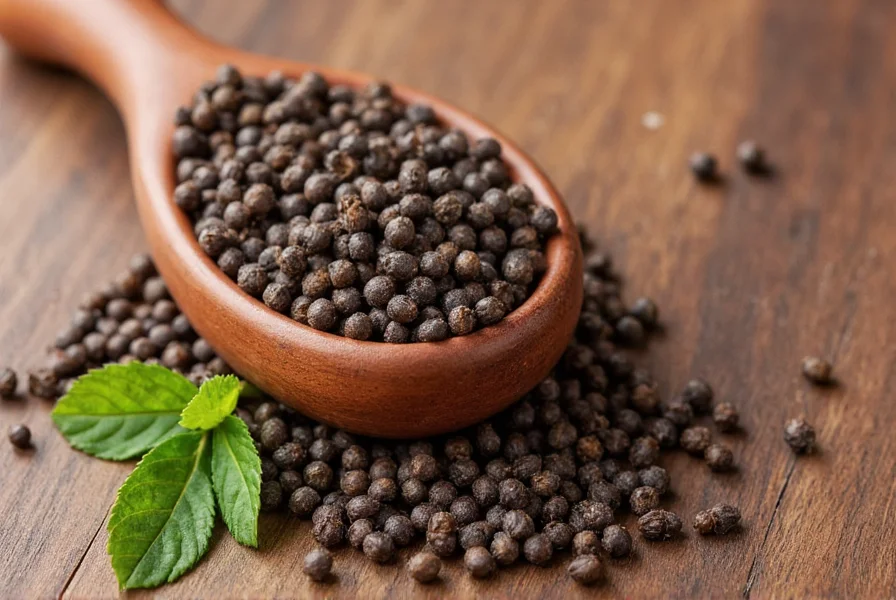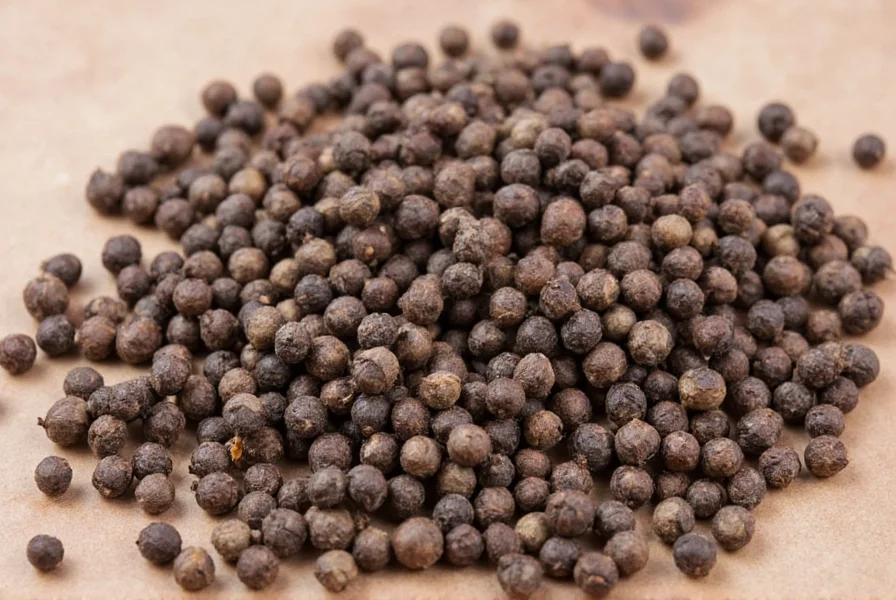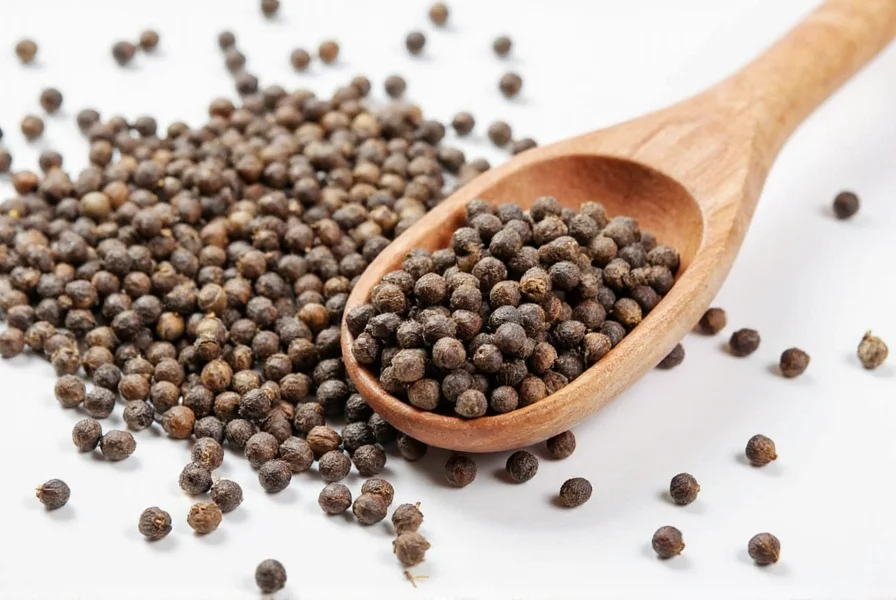Black pepper (Piper nigrum) has been used for centuries as both a spice and traditional medicine. This common kitchen staple deserves a closer look to understand its true impact on health beyond the simple question is black pepper bad for you.
Nutritional Profile of Black Pepper
Black pepper contains minimal calories but packs a nutritional punch relative to its serving size. A single teaspoon (about 2.3 grams) provides:
| Nutrient | Amount per Teaspoon | % Daily Value |
|---|---|---|
| Calories | 9 | 0.5% |
| Dietary Fiber | 0.5g | 2% |
| Manganese | 0.1mg | 5% |
| Vitamin K | 2.8mcg | 3% |
| Iron | 0.2mg | 1% |
The real star of black pepper is piperine, which makes up about 5-9% of its composition and delivers most of its health-promoting properties. When considering is too much black pepper harmful, understanding these components becomes crucial.
Science-Backed Health Benefits of Black Pepper
Research reveals several compelling benefits of moderate black pepper consumption:
Enhanced Nutrient Absorption
Piperine increases the bioavailability of various nutrients and compounds. Studies show it can boost absorption of:
- Curcumin (from turmeric) by up to 2,000%
- Coenzyme Q10 by approximately 30%
- Beta-carotene and selenium by significant margins
Antioxidant and Anti-inflammatory Properties
Black pepper demonstrates notable antioxidant activity, helping combat oxidative stress. Research published in the Journal of Agricultural and Food Chemistry found black pepper extracts effectively neutralized free radicals. This addresses concerns about is black pepper bad for your stomach—in fact, its anti-inflammatory properties may support digestive health.

Potential Concerns and Side Effects
While black pepper is safe for most people, certain situations warrant caution when addressing is black pepper bad for you:
Medication Interactions
Piperine inhibits enzymes responsible for metabolizing certain medications, potentially increasing their concentration in the bloodstream. Medications that may interact include:
- Anticoagulants like warfarin
- Antiepileptic drugs
- Certain antidepressants
- Some chemotherapy medications
If you take prescription medications, consult your healthcare provider about potential interactions with black pepper.
Digestive Sensitivity
Some individuals with sensitive digestive systems may experience:
- Mild heartburn
- Stomach irritation
- Increased acid production
These effects typically occur only with excessive consumption beyond normal culinary use. For most people asking is black pepper bad for your stomach, the answer is no when used moderately.
Safe Consumption Guidelines
Understanding how much black pepper is safe to consume helps put concerns in perspective:
- Typical culinary use: 1/4 to 1/2 teaspoon per serving is generally safe
- Supplemental doses: Studies using piperine supplements typically use 5-20mg daily
- Maximum safe intake: No established upper limit, but amounts exceeding 1-2 teaspoons daily may cause issues for sensitive individuals
The European Food Safety Authority considers black pepper safe at normal dietary levels. No serious adverse effects have been reported from culinary use.
Special Considerations
Certain populations should exercise additional caution regarding black pepper side effects:
Pregnancy and Breastfeeding
Normal food amounts are considered safe, but high-dose supplements should be avoided during pregnancy due to limited research on concentrated piperine.
Gastrointestinal Conditions
Individuals with ulcers, GERD, or inflammatory bowel diseases might want to moderate intake if they notice symptom exacerbation, though black pepper isn't inherently problematic for these conditions.

Black Pepper in Your Diet: Practical Recommendations
Instead of worrying about is black pepper bad for you, consider these evidence-based recommendations:
- Use freshly ground pepper when possible for maximum piperine content
- Combine with turmeric to significantly boost curcumin absorption
- Listen to your body—reduce intake if you experience digestive discomfort
- Consult your doctor about potential medication interactions if you take prescription drugs
- Enjoy it as part of a varied, balanced diet rather than focusing on isolated effects
Black pepper's long history of safe culinary use across cultures supports its status as a beneficial spice when consumed normally. The question can black pepper interact with medications deserves attention for those on certain pharmaceuticals, but for most people, black pepper enhances both flavor and nutrition without significant risk.
Conclusion
The evidence clearly shows black pepper isn't bad for you—it's actually beneficial when used appropriately in cooking. Concerns about is black pepper bad for you generally stem from confusion between normal culinary use and extremely high supplemental doses. For the vast majority of people, black pepper contributes positively to health through enhanced nutrient absorption, antioxidant effects, and anti-inflammatory properties. As with any food component, moderation is key, and those with specific health conditions or medication regimens should consult healthcare providers about their individual circumstances.
Frequently Asked Questions
Can black pepper cause stomach problems?
Black pepper rarely causes stomach problems when used in normal culinary amounts. Some sensitive individuals might experience mild heartburn or irritation with excessive consumption, but typical use (1/4-1/2 teaspoon per serving) generally supports digestive health rather than harming it. If you have conditions like ulcers or GERD and notice symptoms worsen with black pepper, moderate your intake accordingly.
How much black pepper is too much per day?
There's no established upper limit for black pepper consumption, but amounts exceeding 1-2 teaspoons daily may cause digestive discomfort for sensitive individuals. Most people safely consume much less—typically 1/4 to 1/2 teaspoon per meal. Supplemental piperine (the active compound) is generally used at 5-20mg daily in studies. If you experience heartburn or stomach irritation, reduce your intake to determine your personal tolerance level.
Does black pepper interact with blood pressure medication?
Black pepper may potentially interact with certain blood pressure medications, particularly calcium channel blockers. Piperine can affect how the body metabolizes these drugs, potentially increasing their concentration in the bloodstream. If you take blood pressure medication, discuss your black pepper consumption with your healthcare provider, especially if using supplements containing concentrated piperine. Normal culinary use typically poses minimal risk, but individual responses may vary.
Is black pepper good for digestion?
Yes, black pepper supports digestion in several ways. It stimulates the production of hydrochloric acid in the stomach, which improves protein breakdown. The piperine in black pepper also enhances enzyme activity throughout the digestive tract and has anti-inflammatory properties that may benefit gut health. Traditional medicine systems have used black pepper for digestive issues for centuries, and modern research supports its role in promoting healthy digestion when consumed in normal food amounts.
Can I be allergic to black pepper?
Yes, though rare, black pepper allergies do occur. Symptoms may include skin rash, itching, swelling, difficulty breathing, or digestive upset after consumption. Black pepper allergy is more common among spice industry workers with frequent exposure. If you suspect a black pepper allergy, consult an allergist for proper testing. Most people who experience discomfort from black pepper are not allergic but may have sensitivity to its pungency, which typically resolves with reduced consumption.











 浙公网安备
33010002000092号
浙公网安备
33010002000092号 浙B2-20120091-4
浙B2-20120091-4